Once upon a time in 1972
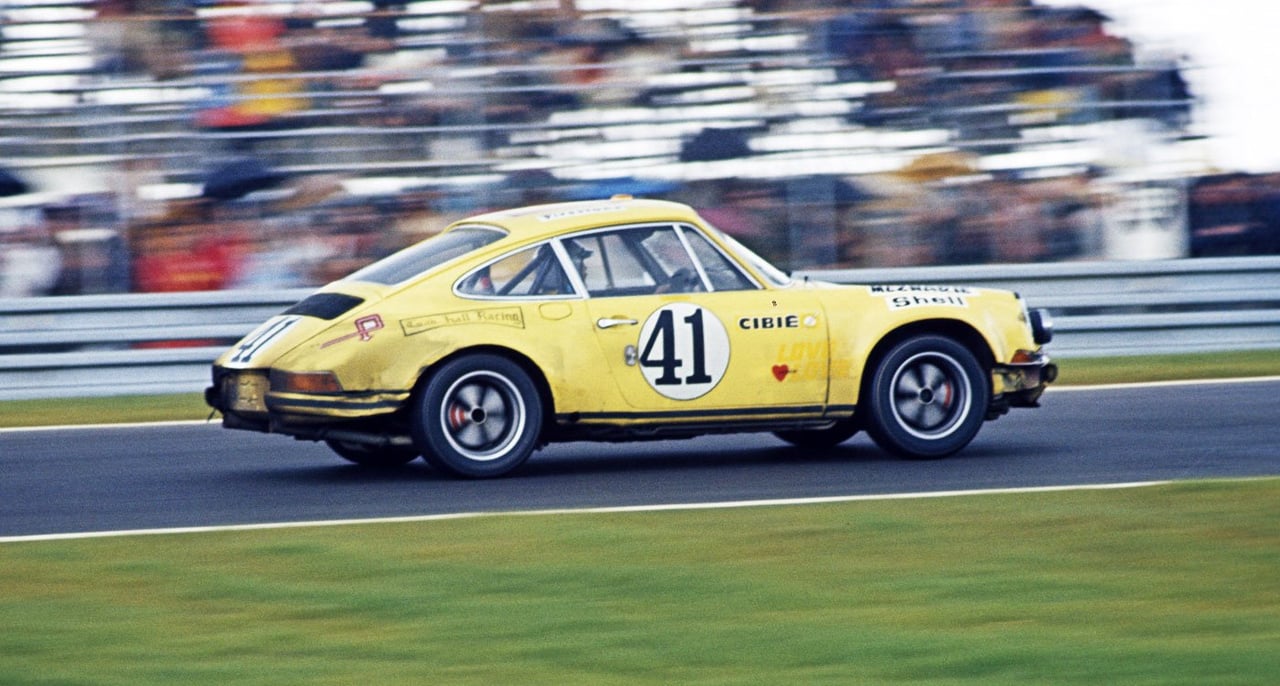

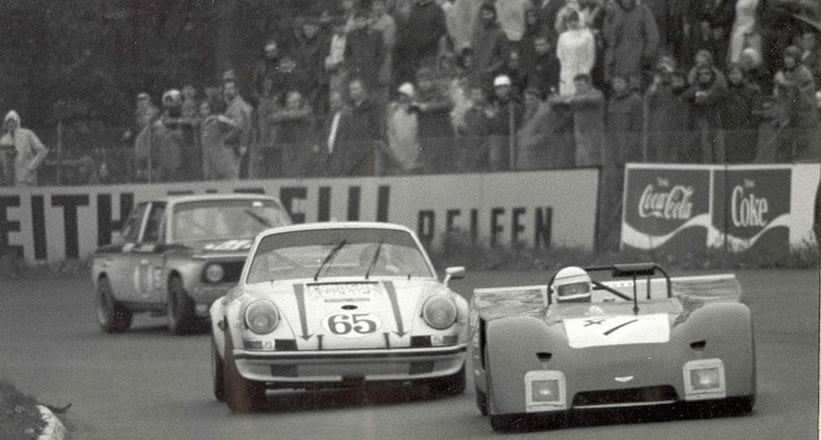
This Porsche 911 started life as a 2.4 S Coupé, ordered by the American racing driver Mike Keyser in late 1971 for use in the following endurance season. Porsche’s customer sports department then went about converting the car to Group 3/4 specifications, which included boring out the engine to 2.5 litres, stripping out the interior and installing a 110-litre fuel tank. In total, only 24 examples of these 2.5 S/Ts were built, at a cost of 49,680 Deutsch Marks each (the equivalent of around 25,000 euros).
Throughout 1972, Keyser shared the driving duties with Jürgen Barth, who was then employed by the Porsche customer sports department. The subsequent Porsche factory driver and 1977 Le Mans-winner arranged for Keyser to enter some races in Europe as well as America, including the 24 Hours of Le Mans. “Mike Keyser had invited me to Sebring and we planned to drive the full 1972 endurance championship. Mike had even hired a small television team to accompany us throughout the season. The resulting footage – including shots from the front and rear bumpers of this Porsche – later found its way into the famous endurance-racing film The Speed Merchants.”
Speed Merchants

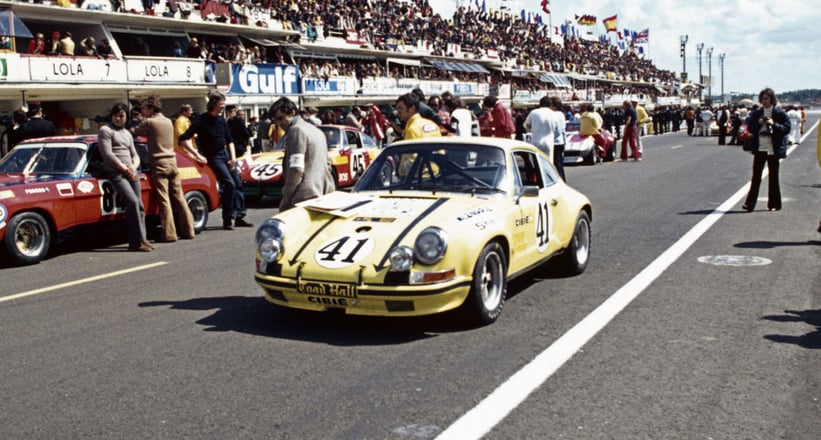
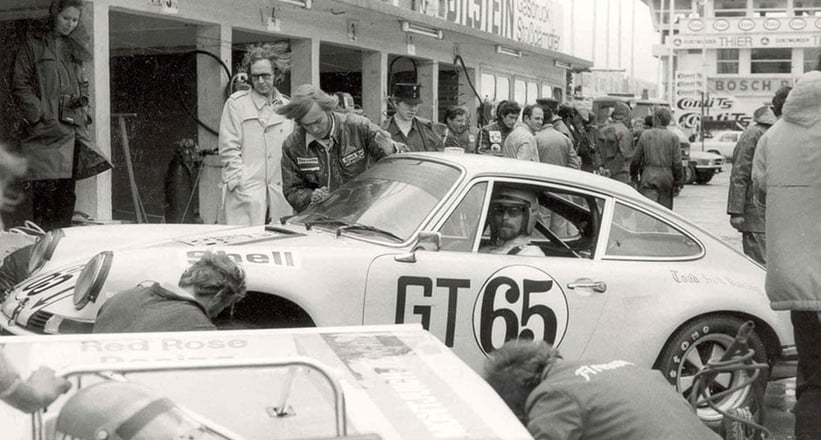
Barth and Keyser contested the Sebring 12 Hours (DNF, due to camshaft failure), the Targa Florio, the Nürburgring 1,000km and Le Mans, using the workshops of the Max Moritz Racing Team in Reutlingen, Germany, as a base during the European events. Keyser recalls tentatively driving the team’s transporter through the Alps. “The fully-loaded GMC transporter we’d brought over from the States had an automatic transmission, and was less than ideal in the braking department,” Keyser told the Porsche 356 Registry. “Several times the brakes heated up to the point they were all but useless, and our chief mechanic Hans Mandt was fully prepared to abandon ship at any moment if he couldn’t find a suitable run-off area.”
In Sicily during the Targa Florio, Keyser used the sister 911 2.4-litre Lightweight as a spare/camera car. “During qualifying we mounted a 16mm camera on the bonnet,” recalls Keyser. “Halfway around the course, I was passed by Rolf Stommelen driving one of the Alfa Romeo prototypes. Much to my surprise and delight, rather than taking off immediately, he allowed me to follow him for a kilometre or so to get some good action shots.” In the race, the Toad Hall Racing 911 – complete with “Porsche Club of America” sticker on the windscreen – climbed up to sixth place overall, until Barth hit a wall on lap eight. “Luckily neither the oil cooler nor the suspension were damaged, but the repairs in the pits relegated us to 10th spot,” comments Barth.
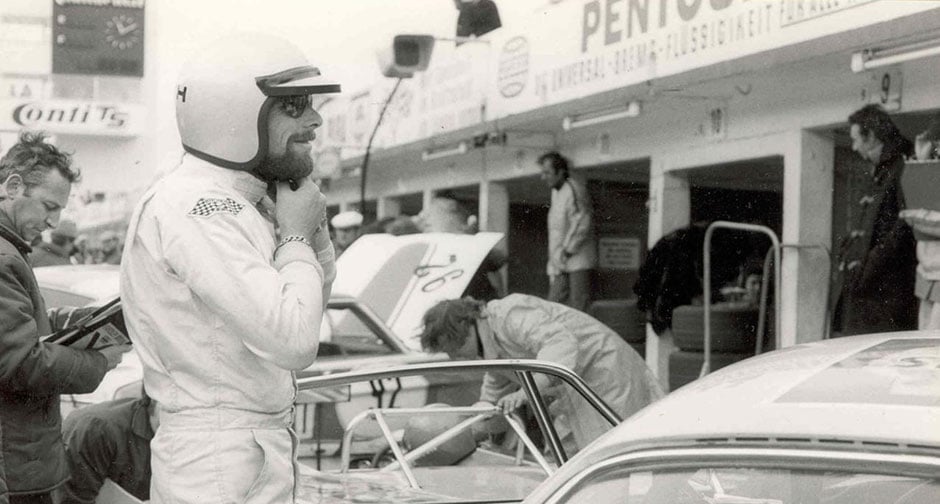
During his last stint at the Nürburgring the following week, Keyser found himself at the mercy of the ‘Green Hell’. “I felt nauseous,” said Keyser. “It was probably the combination of the bratwurst I’d eaten earlier and the undulations of the course, which left my stomach hanging in mid-air. After turning the car over to Jürgen – and with my feet back on solid ground – I quickly recovered. We finished 13th overall and fourth in the class, and the car was still in one piece.”
The season’s highlight undisputedly came at Le Mans when, together with Frenchman Sylvain Garant, the duo finished (once again) 13th overall, and first in the GT class. This was thanks in part to Barth, who’d managed to obtain a special short-stroke engine from the factory that survived the 24-hour ordeal, unlike all the other 911s with their regular engines.
Lost treasure
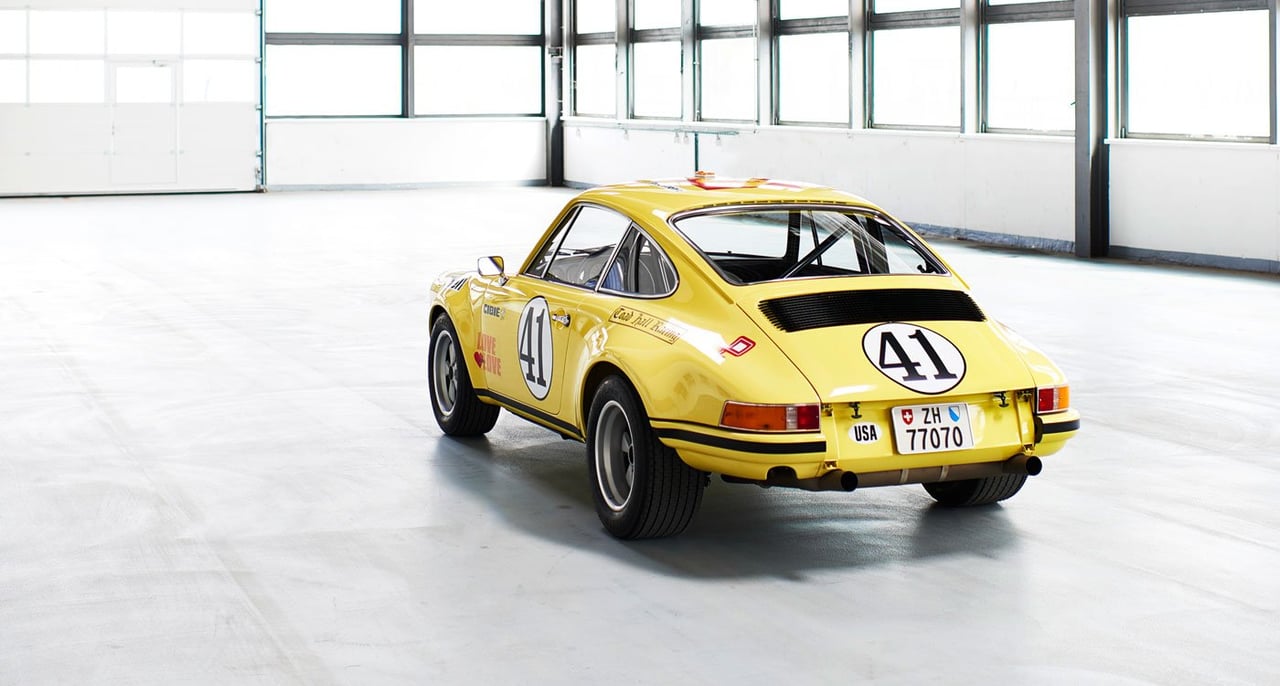
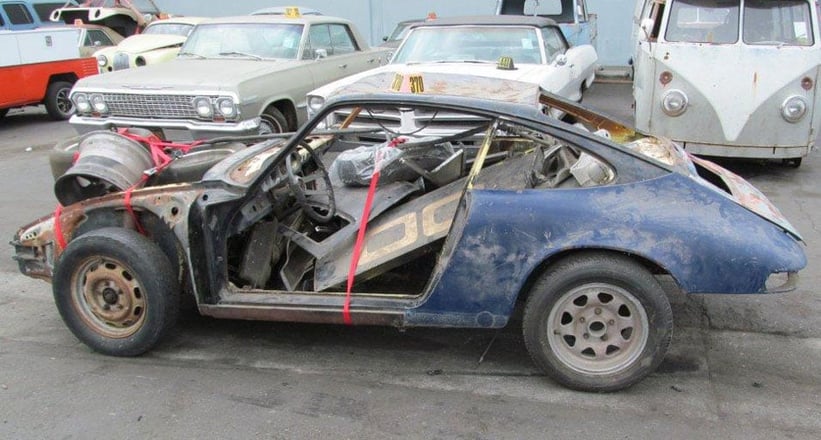

Several years ago, a Porsche collector discovered a dilapidated 911 in an American scrapyard. On closer inspection of the chassis, it emerged that it was actually the ex-Michael Keyser 2.5 S/T. Porsche Classic was then commissioned to restore the car – a fastidious process that would take over two years. The experts in Zuffenhausen certainly had their work cut out, as the car had not only subsequently been given a later ‘G’ series body, but was also improperly repaired following an accident. After the chassis had been straightened, a new roof and wheelarches handcrafted and the sheet metal thoroughly de-rusted, the 911 was treated to a coat of its original shade of light yellow (code 117).
A golden era



We’re thrilled to report that the car’s new Swiss owner has promised to return the 911 to the racetrack, where it will serve as a reminder of a truly golden era of motorsport. As Michael Keyser (now 68-years old) reports about the filming of The Speed Merchants, “We were shooting on the eve of the Sebring race in the Ferrari garages when, amazingly, the team’s racing director Peter Schetty handed us the key to the pit door. His only request was that we lock up when we were finished, and return the key to the restaurant in which he and the crew were dining once we were finished.” We somehow doubt the same thing would ever happen today.
Photos: Porsche Classic/Archives

























